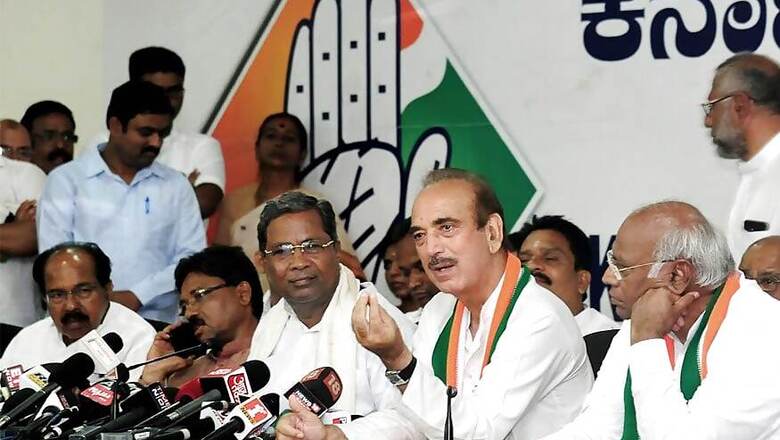
views
New Delhi: The electoral battle in Karnataka will commence on April 18, with 14 of the 28 constituencies in the state voting in the second phase of the Lok Sabha elections. In an uphill task, the Bharatiya Janata Party (BJP) is locked in a face-off with the combined alliance of the Congress and the Janata Dal (Secular), unlike in the 2014 elections when the parties contested individually.
This time round, even as the BJP banks on the popularity of Prime Minister Narendra Modi, it will also try to exploit the constant tussle between the Congress and the JD(S) coalition that has been in power in the state since May 2018.
The electoral mood in these 14 constituencies is crucial as it will set the direction for the rest of the state. The BJP and the Congress each currently holds six of these, the JD(S) holds the other two.
Seven of these 14 are rural constituencies, four are semi-urban, and the rest are urban. The three urban constituencies are based in state capital Bengaluru and are currently held by the BJP. The Congress, with four seats, dominates a majority of the rural constituencies. In the four semi-urban constituencies, the Congress and the BJP have equal dominance, in two seats each. Three of these 14 seats also fall under the SC category, with all of them currently held by the Congress. These are Chamarajanagar, Chitradurga and Kolar.
Under the pre-electoral alliance, the Congress will contest from 21 constituencies and has left the other seven to the JD(S). A major concern for the two parties will be ensuring a successful vote transfer between them by uniting their cadre at the grassroots level. On the other hand, the BJP’s major challenge is to retain the number of seats it won in 2014 as Karnataka is the only southern state where the party has a substantial support base.
Of these 14 constituencies, the Congress is fighting in 10 and its alliance partner in the remaining four. As per the combined vote share of 2014, the Congress-JD(S) can win nine of these 14 if the coalition is able to ensure a successful transfer of votes. In the remaining four constituencies, the alliance is set to face an uphill task as the BJP had accrued more than 50% of the total vote share. These five constituencies are Bangalore South, Bangalore North, Bangalore Central, Dakshina Kannada and Udupi Chikmagalur.
In the 2009 general elections, of these 14 seats, the BJP held seven, the Congress won four, and the remaining three went to the JD(S).
One of the most interesting battles will be in Mandya, Chikballapur and Tumkur.
JD(S) leader Nikhil Gowda, son of Chief Minister HD Kumaraswamy, will contest from Mandya. He will take on actor Sumalatha Ambareesh, who is contesting as an Independent candidate with support from the BJP, a few sections of the Congress and the JD(S). In Chikballapur, Congress veteran and MP Veerappa Moily is pitted against Bache Gowda of the BJP. Tumkur will witness a battle between JD(S) supremo HD Deve Gowda and the BJP’s GS Basavaraj.
One of the major issues concerning voters is the scarcity of water shortage, mainly in Bengaluru and Mysuru. The other pivotal issues are farm distress, drought, lack of employment opportunities among youth, and massive pollution in water bodies. Matters related to the river-linking project of Godavari and Cauvery can also be important as Union minister Nitin Gadkari had said earlier that this will be one of the topmost priorities of the BJP government.




















Comments
0 comment